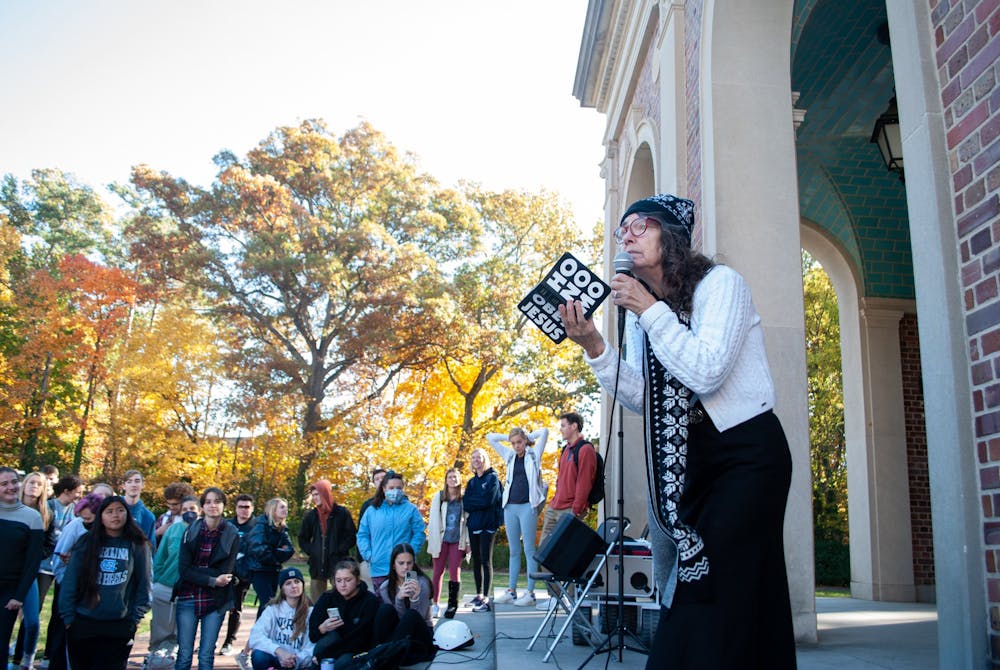As many UNC students know, the Pit is essentially the center for activities on campus — so many people pass through it every day. UNC’s website boasts that in a single day, every UNC student passes through the Pit.
Even if the previous statement isn’t true, the Pit’s popularity attracts many on-campus and off-campus groups who try to take advantage of the high volume of foot traffic to try and reach as many people as possible.
However, in a bid to make sure their message reaches and stays with people, many groups and individuals often resort to very extreme messaging or incendiary phrasing, which, while memorable, also tends to drive people away from the original goal.
Many religious groups tend to make this mistake — instead of showing and spreading love or empathy, they tend to try to scare people into their beliefs.
Just a few days ago, I was walking through the Pit and someone handed me a small comic book that essentially said if we don’t believe in God, we would all be going to hell.
As a Christian myself, I know it can be hard to share our beliefs without feeling like we’re trying to impose it on others, and an apocalyptic form of messaging probably doesn’t give the religion a good light in the eyes of non-Christians.
We all know Gary Birdsong, the infamous Pit Preacher who travels to public schools across North Carolina and “preaches” about Christianity. However, his extreme beliefs and messaging only drive people away from the Christian faith and give it a bad appearance.
Furthermore, whether he realizes or not, Gary has become a source of derision with the few actually taking him seriously. There are videos on YouTube with people turning his phrases into a song, purposely asking questions that will get an outlandish response and even a Rate My Professor page for him.
Recently, Sister Cindy, a well-known TikToker and evangelist, also came to UNC and started an amusing show at the Bell Tower where she asked random students about their sex lives and asked that they “hoe no mo'.”



